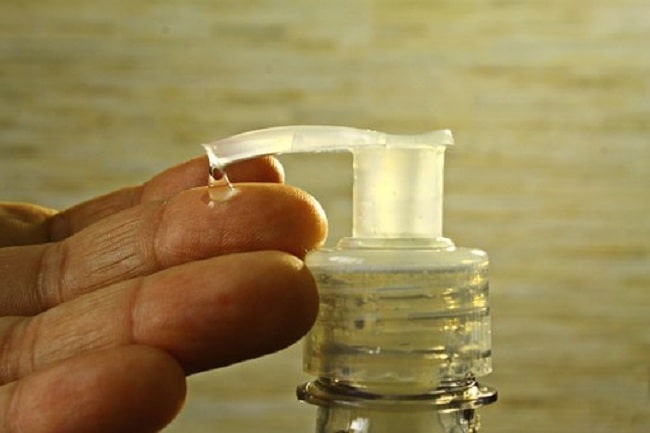Contents:
- Medical Video: Hand Sanitizers and Soaps Put to the Test
- What is contained in the hand sanitizer?
- Health risks that may occur if you use hand sanitizer often
- 1. Immune antibiotics
- 2. Reducing immunity
- 3. Contains hazardous chemicals
- Safer, make your own hand sanitizer gel at home from natural ingredients
Medical Video: Hand Sanitizers and Soaps Put to the Test
Hand sanitizer is a practical hand washing solution replacement solution. You don't need to wash your hands anymore when you bring this hand sanitizer gel. However, is using a sanitizer hand safe?
What is contained in the hand sanitizer?
Hand sanitizers contain alcohol, such as ethyl alcohol, which works as an antiseptic agent. Nearly 90% of hand sanitizer products on the market contain ethanol or ethyl alcohol.
Some hand sanitizer products that claim to be alcohol free replace it with an antibiotic component called triclosan or triclocarban. This ingredient is also found in soap and toothpaste.
The United States Food and Drug Safety Agency (FDA) reports that triclosan can carry several health risks as discussed below. Other studies also cast doubt on whether hand sanitizers are more effective at cleaning hands than traditional methods, by washing hands with soap.
Health risks that may occur if you use hand sanitizer often
1. Immune antibiotics
Antibiotics are effective against bacteria. But the content of triclosan in hand sanitizing gel that functions as an antibacterial is believed by medical experts to play a major role in making bacteria resistant to antibiotics.
2. Reducing immunity
Frequency uses hand sanitizer containing trichlosan or triclocarbancan reduce your body's immunity against disease by killing good bacteria in the body to fight bad bacteria. If the immune system is weakened, the body will be more susceptible to infection.
The use of the above chemicals in the long run has the risk of causing interference with the function of the skeletal muscles and the heart. What's more, the impact of using hand sanitizer gel containing trichlosan or triklokarban is not immediately felt. Usually routine use for a period of three to five new years will result in dry and sensitive skin.
3. Contains hazardous chemicals
If you kiss hand sanitizer, then you will feel a strong smell like chemical. Fragrances from hand gel gels come from synthetic chemical compounds called phthalates, odorless liquids as good and inexpensive solvent agents for perfumes. In fact, this liquid helps dissolve expensive perfumes in perfume sprays, bath creams, gels, etc.
Phthalates are associated with a variety of endocrine disorders, toxicity of fetal and reproductive system development, decreased motility (movement) and concentration (number) of sperm, as well as allergies, asthma, and cancer. Phthalate content in cosmetic products is also suspected to cause diabetes.
Safer, make your own hand sanitizer gel at home from natural ingredients
Instead of a commercial hand sanitizer that can be harmful to the body, it's better to mix your own hand sanitizer using pure essential oils, for example tea leaf oil (tea tree oil) which is naturally antibacterial, antifungal, and antiviral so it is considered effective to replace the chemicals contained in hand sanitizer.
Essential oils from oranges and lavender flowers also share antiseptic and antioxidant functions. As a source of antioxidants, this oil will regenerate the skin cells of your hands so that the hands will always be soft and supple. To help prevent the growth of viruses or bacteria in the body, antioxidants can strengthen your immune system.
But the most recommended is still washing hands with water and soap. Whenever you can, wash your hands for about 20 seconds using ordinary soap. This is better than using a hand sanitizer. Soap can keep good bacteria on your body that can help fight bad bacteria.












